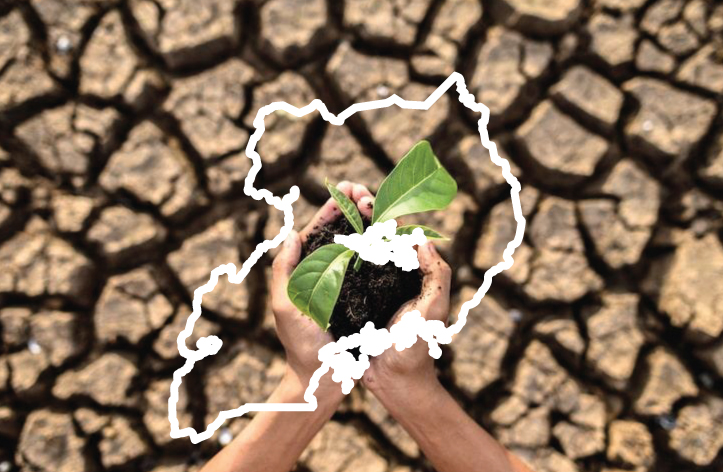As the world accelerates its journey toward a low-carbon future, Uganda stands on the cusp of an energy transformation. With vast potential in solar, hydro, and biomass resources, the country is charting a path towards renewable energy adoption that promises not only environmental sustainability but also economic growth. Yet, beneath this promise lies a fundamental question: what happens to the workers who currently power Uganda’s economy? How can we ensure that the transition is not only green, but also just?
In recent years, global discourse has increasingly acknowledged that the shift from fossil fuels to renewables is not simply a technological change, it is a socio-economic transformation. It affects where people work, how they work, and what rights they can claim in the workplace. At the heart of this shift lies labour, a vital yet often invisible force in energy policy discussions. The transition to a green economy must therefore be shaped by justice, fairness, and inclusion. If not, it risks becoming a site of new inequalities, particularly for low-income, informal, and marginalised workers.
In Uganda, the energy sector has long been dominated by centralised hydro and more recently, significant investment in oil and gas infrastructure. These extractive sectors have created employment, but they have also exposed workers to hazardous conditions, informal contracts, and weak bargaining power. As the country gradually pivots toward renewables, many workers in oil, gas, and ancillary industries face job insecurity, without clear alternatives or retraining opportunities. Unfortunately, labour considerations have yet to be firmly integrated into the architecture of Uganda’s energy governance.
The green economy encompassing solar energy, clean mobility, sustainable agriculture, climate services, and circular industries offers tremendous potential for job creation. These are the so-called “green jobs” that development blueprints often celebrate. In Uganda, sectors like solar installation, biofuel processing, waste recycling, and energy-efficient construction could create thousands of new jobs, especially for youth. But the reality is that many of these jobs are emerging in fragmented, informal markets with limited regulation, poor working conditions, and no social protection.
Women, who already face significant barriers in Uganda’s labour market, are particularly at risk of exclusion. Despite the rhetoric of inclusion, women remain vastly underrepresented in technical and leadership roles in the energy sector. The green transition, if not carefully planned, may replicate the same patriarchal structures and employment inequalities that exist in traditional energy systems.
Health and safety is another overlooked area. From solar panel installers who scale rooftops without protective gear to biomass producers exposed to harmful fumes, many workers in Uganda’s emerging green sectors are at risk. Labour laws have not yet been updated to reflect the occupational hazards in renewable energy work. Enforcement remains weak, and the absence of sector-specific guidelines leaves employers and workers alike without adequate direction.
If Uganda is to build a resilient and fair energy system, it must centre labour in its transition frameworks. This requires a shift in thinking, to treat workers not as passive beneficiaries, but as agents of change and rightful stakeholders in energy planning. International frameworks such as the International Labour Organization’s Just Transition Guidelines provide a valuable starting point. These principles emphasise social dialogue, skills development, social protection, gender equity, and respect for workers’ rights throughout the transition process.
There is an urgent need to expand and align technical and vocational education with the demands of the green economy. Uganda’s education system, while expanding, has not yet fully adapted to provide practical, future-ready skills in renewable energy technologies, green entrepreneurship, or sustainable resource management. To prepare for the future of work, skilling initiatives must be responsive, inclusive, and accessible especially for youth and women in rural areas. Partnerships between government, academia, industry, and international donors could play a pivotal role in building this capacity.
A further gap lies in representation. Workers in emerging green sectors have limited voice in policy spaces. Trade unions remain focused on traditional sectors, and have yet to fully engage with renewable energy industries or informal workers in adjacent sectors like clean cooking, recycling, or sustainable transport. Strengthening worker representation in climate and energy governance can ensure that policies are grounded in real-world labour realities. This is particularly critical as Uganda prepares to implement carbon trading, ESG reporting, and other green finance mechanisms all of which must include enforceable labour safeguards.
Legislative reform is another essential component. Uganda’s labour laws should be revised to include specific provisions for green jobs addressing contracts, safety, wages, social protection, and grievance mechanisms in sectors such as solar, wind, waste management, and environmental services. Regulatory frameworks must also recognise and support informal workers who form a significant share of the green economy, including charcoal producers transitioning to clean cooking fuels, waste sorters, or boda-boda drivers supporting solar logistics.
Institutionally, the Ministry of Gender, Labour and Social Development should consider establishing a Just Transition Task Force to oversee coordination between ministries, guide policy coherence, and monitor labour outcomes in the green economy. A dedicated national strategy on just transition could further help integrate labour, environmental, and economic planning aligning with Uganda’s Vision 2040 and its commitments under the Sustainable Development Goals.
Importantly, Uganda must build its own local expertise and industrial capacity to produce, install, and maintain renewable energy systems. Overreliance on imported technologies and foreign labour not only limits local job creation, but also stifles technological transfer and home-grown innovation. Public-private partnerships should be designed to build local capacity and prioritise Ugandan employment; – not just in construction phases, but across the entire energy value chain.
At this critical juncture, Uganda has the opportunity to reimagine its energy future, one that is green, inclusive, and just. The energy transition must not deepen inequality, displace workers without support, or create new forms of exploitation. Rather, it must become a pathway for social transformation, where green jobs are also decent jobs. Where every household powered by renewable energy is also part of an economy that respects dignity, rights, and the contributions of labour.
To power Uganda’s future, we must first empower its people especially those who have for too long been excluded from conversations about energy, justice, and development. Labour must move from the margins to the centre of the energy transition. Only then can we speak of a truly sustainable future one that is not only green, but fair.


